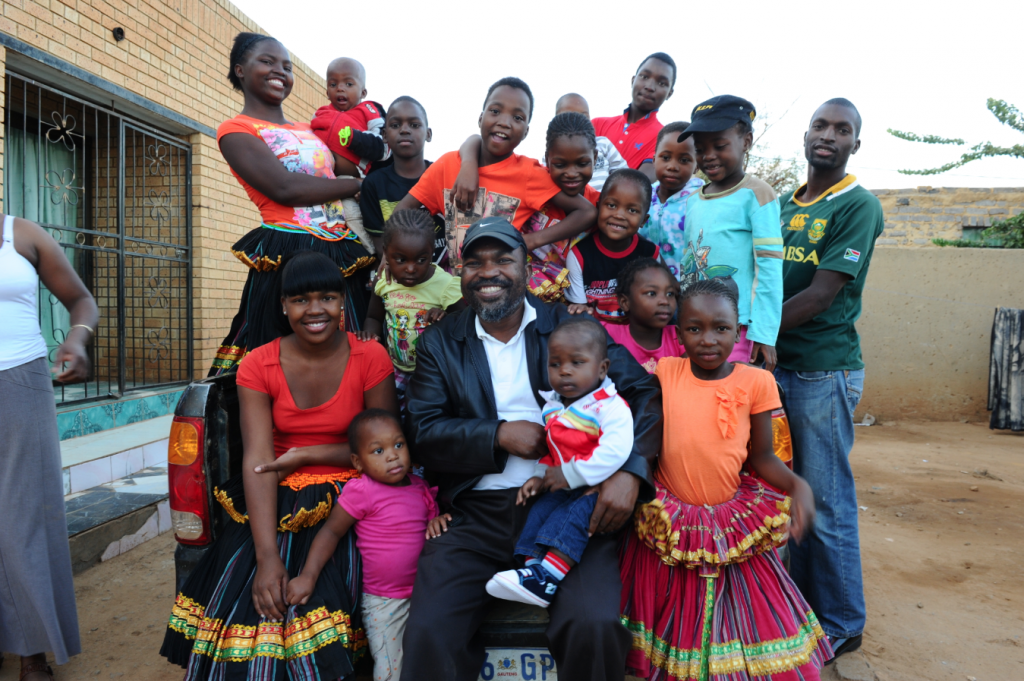Dear Beamers,
Greetings!
Marriage serves as a fundamental cornerstone upon which societies are constructed, establishing social bonds, responsibilities, and communal cohesion. While monogamy remains the prevailing model for family structures, polygamy continues to persist within various societies. In this week’s newsletter, we will discuss the emotional and psychological ramifications experienced by individuals raised in polygamous households.
Polygamy, an ancient practice, remains prevalent in several countries, including Nigeria. It is deeply ingrained within Nigerian society, often sanctioned on both cultural and religious grounds. Polygamous unions entail one man having multiple spouses. Psychologists categorize the inclination towards polygamy as polyamorous behavior, indicating the capacity to love multiple individuals simultaneously. Consequently, individuals may seek marriage with multiple partners to express equitable affection towards each.
Historically, polygamy was culturally embraced by African men due to its perceived benefits, which include the equitable distribution of household responsibilities, agricultural tasks, and childcare duties. Cultural beliefs exert a significant influence on individuals’ attitudes and perspectives, thereby playing a pivotal role in fostering acceptance of polygamous practices.
From a religious perspective, polygamy is a well-established practice within the Islamic community of Nigeria. Islam permits men to marry up to four wives simultaneously, provided they maintain equality and justice in all material possessions. The Holy Quran serves as the textual foundation for polygamous unions in Muslim families. In the Muslim world, polygamy is not only recognized but also endorsed as a religiously sanctioned and legally acceptable form of relationship. It serves to safeguard families against the risk of contracting sexually transmitted diseases and potential involvement in illicit sexual encounters.
The outcomes observed in certain polygamous marriages suggest that the family structure often detrimentally impacts the psychological and social well-being of both women and children within these unions. It is frequently reported that husbands’ discriminatory behavior and unequal treatment of their wives contribute to various mental health challenges within polygamous households.
“Arranged marriages might lead to polygamy because couples miss out on the chance to really get to know each other before tying the knot. It’s like skipping driving lessons and going straight to a job as a driver, relying only on online videos for knowledge. While it might work out sometimes, marriage involves dealing with a fully grown person who has their own experiences and outlook on life, which can be a whole new challenge.” Says Okafor Peter
In the event of a breakdown in the bond within an arranged marriage, it creates an opportunity for external parties to intervene and potentially disrupt the fragile hope that remained. This scenario often arises when a husband develops a relationship with another woman, fostering companionship, and eventually seeks to formalize the union through marriage, thereby relegating the original wife to a secondary position.

Polygamy can arise in certain cases due to infertility issues experienced by one partner after an extended period of marriage. Within many African contexts, societal pressures from in-laws often lead to derogatory treatment of the woman and insistence on the husband to take another wife to ensure family lineage continuity. Conversely, there are instances where the wife herself may persuade the husband to enter into a polygamous marriage, believing that by accepting a co-wife, she too may be blessed with children. While this reasoning may not always seem logical, it is noteworthy that in some cases, the first wife eventually bears children as well.
Some women choose to accept polygamy as a practical solution to prevent being entirely replaced through divorce. Rather than facing divorce or tolerating their husband’s clandestine involvement with multiple partners, they opt to accommodate one or more co-wives.
Some women also consent to polygamy due to various factors, including pressure to bear a male child or their reluctance to undergo further childbirth experiences. Following childbirth complications such as cesarean sections, severe illnesses, or traumatic labor experiences, some women may opt against additional pregnancies. If the husband insists on expanding the family, they may agree to the introduction of co-wives. Additionally, concerns about preserving the family name or ensuring male heirs to inherit properties, particularly among affluent individuals, can prompt consideration of polygamous unions. Despite husbands’ affection for their wives, the desire to safeguard familial assets from charitable donations or mismanagement by daughters may motivate wealthy men to pursue polygamy in hopes of securing a male offspring.
According to Ishaq Aminu, a separated mother of two,
“Women in Nigeria often face pressure from family and society to marry and have children by a certain age. If they’re single, divorced, or separated, they’re looked down upon in polygamous communities and seen as having low social status. Remaining unmarried is seen as a disgrace to families and tribes, so women feel forced into polygamous relationships to avoid embarrassment and society’s judgment.”
The concept of polygamy often triggers various negative emotions and behaviors among those involved, one of which is jealousy. Despite efforts to conceal it, jealousy inevitably emerges, rooted in the instinct to protect one’s relationship. Women, by nature, tend to be territorial and struggle with the idea of sharing their husband and possessions with another woman. In many polygamous situations, the original wife typically prefers separate living arrangements from the new wife to maintain peace and avoid exacerbating feelings of jealousy. However, this arrangement can impact stepchildren, who often struggle to establish rapport and harmony in such circumstances.
Another inevitable consequence of polygamy is the experience of unhappiness and loneliness, particularly among the initial wife or wives and their children. As the husband directs special attention towards the new wife, the original spouse(s) often feel neglected and isolated. Depending on the circumstances surrounding the acceptance of the new wife, she may receive greater social and financial privileges, particularly if the extended family is aware and supportive of her inclusion. Emotions shift alongside changing priorities, a phenomenon that becomes apparent as the wife and children base expands due to polygamous unions.
Competition among wives within a polygamous marriage is a pervasive issue that cannot be overlooked. This rivalry often arises from various factors and results in strained relationships between the co-wives and their children. The perceived competition among wives revolves around garnering attention from the husband or asserting one’s relevance and success within the marriage. Some wives engage in a contest of childbirth to secure a larger share of the family’s resources, particularly in terms of inheritance. Consequently, childbirth becomes a competitive endeavor among these wives. Ultimately, such competition yields detrimental effects that extend beyond the confines of the family unit, jeopardizing societal stability through conflicts over shared resources.
Polygamous marriages impose significant burdens on both men and their wives, as well as their children. Men find themselves mentally and physically strained by the substantial responsibility of supporting a large family. A considerable portion of their income is allocated towards marrying new wives, thereby diminishing resources available for child support. As a result, children receive inadequate support and care from their parents, including diminished investment in their upbringing, education, and critical needs. Ultimately, society bears the repercussions of these challenges, including the long-term consequences of insufficient education and parental guidance for children.
Children are not the only ones who suffer the consequences of polygamy; the parents do too. One prevalent consequence is the occurrence of substance abuse among children, rising from the absence of proper parental guidance. Early substance abuse among children contributes to increased crime rates within societies, leading to a breakdown of social cohesion, responsibilities, and obligations inherent in marriage. The society experiences conflicts arising from the erosion of traditional societal bonds and the sanctity of marital unions.
Polygamy causes psychological problems for children as they battle with psychiatric conditions such as low self-esteem, loneliness, anxiety, and somatization. They also suffer due to lack of parental attention. They feel displaced from their parents, which result in emotional insecurity. This makes them exhibit emotional stress and anxiety more than children in monogamous families.
Polygamy contributes to psychological challenges for children, manifesting in psychiatric conditions such as low self-esteem, loneliness, anxiety, and somatization. Additionally, children grapple with the absence of parental attention, feeling displaced and emotionally insecure within the family dynamic. They often exhibit heightened emotional stress and anxiety compared to children in monogamous families.

“Polygamy messes up the bond between kids and their moms. The kids start hating on their mom for not keeping the dad in line or for getting sad and ignoring them. They end up doubting if they can ever have a healthy relationship because all they’ve seen is fighting and bitterness at home. Second wife’s kids handle it better ’cause they grow up knowing their dad has another family. But the first wife’s kids feel the difference: less time, less stuff, and dad’s not there when they need him.” Says Fashola Damilare
While some individuals may perceive polygamous relationships as suitable for them, whether for religious or personal reasons, others contend that such arrangements can pose challenges for both women and the children raised within these households. Indeed, in the broader scope, polygamy can adversely impact everyone involved: from emotionally traumatized children to wives who contemplate the benefits of single-parent households, and even husbands who acknowledge the stressfulness of such arrangements, with some expressing reservations about recommending it for future generations.
Regardless of the husband’s efforts, polygamy inevitably diminishes the standard of living for the existing wife and dependents, whether directly or indirectly. It is crucial that if a man intends to pursue polygamy for any reason, thorough discussion with the wife is essential to comprehend the potential consequences and ascertain her stance.
Marriage should not be synonymous with suffering, and the notion of another woman entering one’s personal space, let alone becoming a legal partner to the husband, is unsettling for any woman. Hence, while polygamy may not be universally accepted, it remains a reality in our society, and if practiced, it must be approached with utmost care and consideration. As the foundation of society, the family’s stability directly influences the broader societal network, emphasizing the importance of paying attention polygamous relationships with care to prevent detriment to our collective well-being.




